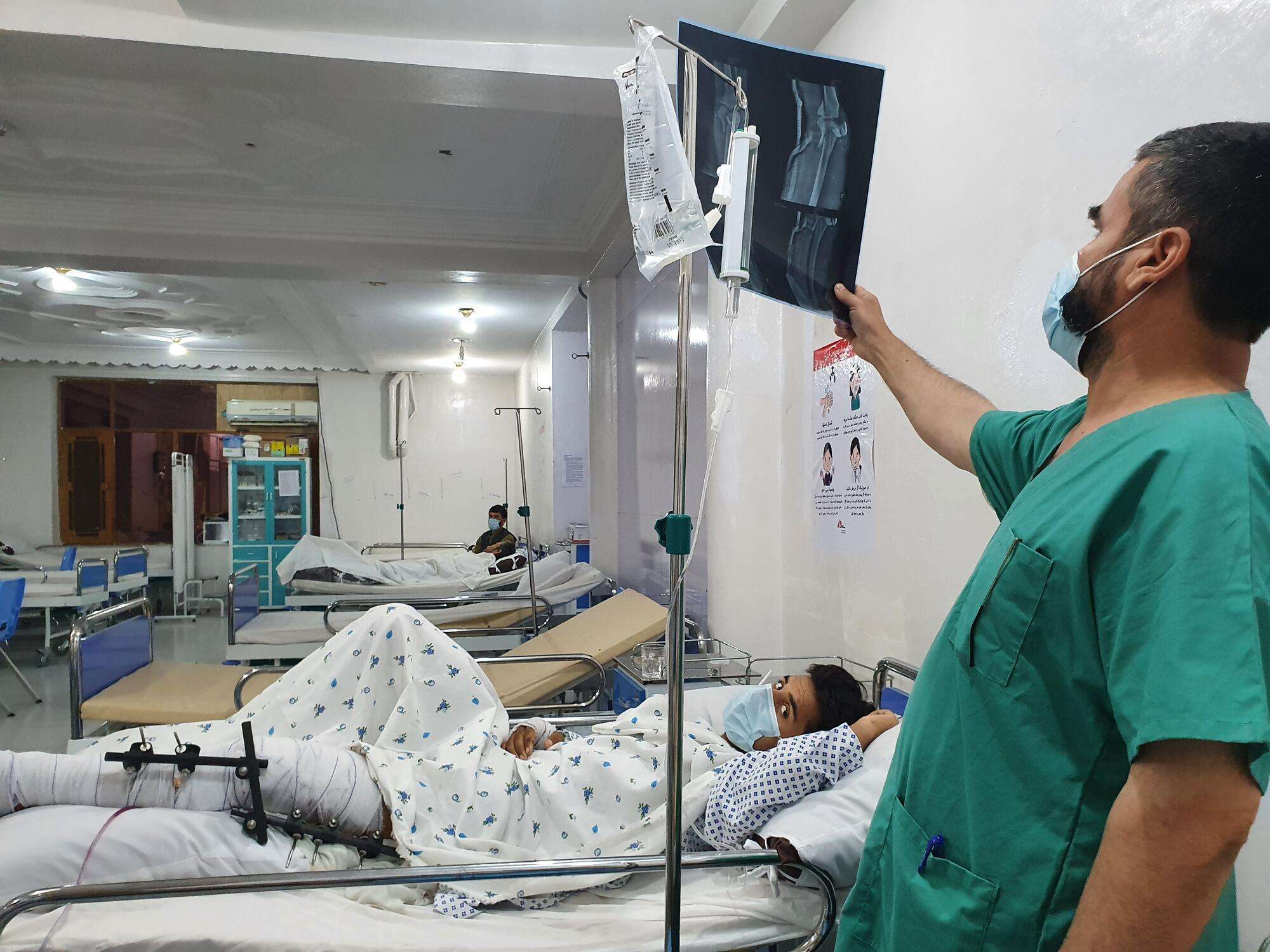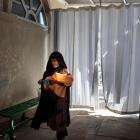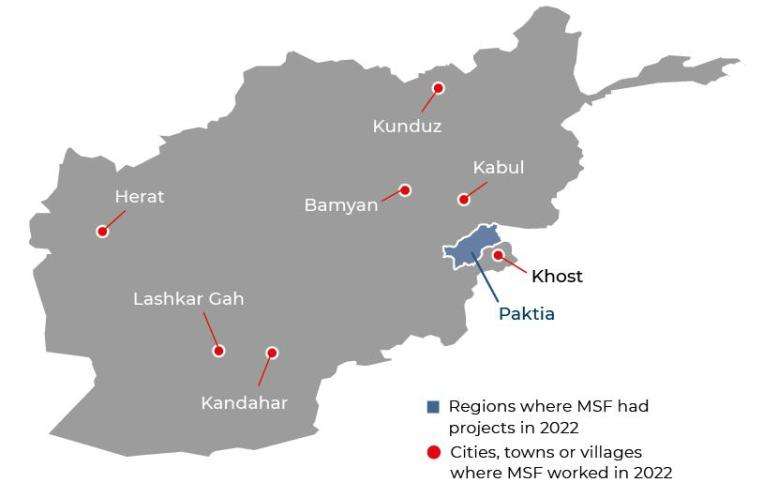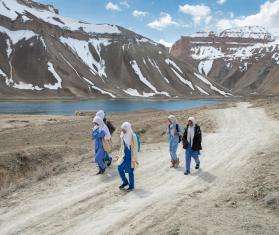In 2022, we saw an increase in the number of people coming to our facilities, possibly due to the lack of free, local medical services and the fact that travel was safer. We ran seven projects in seven provinces, maintaining a strong focus on providing specialized health care. MSF also carried out an emergency response after a 5.9 magnitude earthquake hit Paktika and Khost provinces on June 22. Our teams provided medical and logistical materials to the affected area and set up outpatient and inpatient clinics for women and children, as well as for patients with trauma injuries or acute watery diarrhea.
Lashkar Gah
MSF supports the 340-bed Boost hospital in Lashkar Gah, Helmand province, offering a wide range of medical services, including maternal and pediatric health care and surgery. In 2022, there was a 32 percent increase in patients admitted to the hospital compared to the previous year. This increase can be attributed primarily to the fact that many health facilities in remote districts of Helmand suspended or limited their activities due to a lack of funding, medical supplies and qualified health care workers. Many people were forced to travel to Lashkar Gah to receive care as a result.
Kunduz
MSF’s Kunduz trauma center has an emergency room, intensive care unit (ICU), inpatient and outpatient departments, and two operating theaters. The majority of admissions to the center are for trauma incurred in accidents, but we also provide care to people with injuries related to violence, such as bombing.
Our team in Kunduz reported that it took seriously injured patients sometimes more than seven hours to reach the center. Such long delays can be very detrimental to patient outcomes, and speaks not only to the limited referral and trauma care services in Kunduz, but also to poor road infrastructure in rural communities.
In November, MSF opened a health post in Chardara district to respond to gaps in local health care, including nutrition support and routine vaccination services.
Kabul
In the capital, we supported Maiwand teaching hospital by carrying out renovation work on the pediatric department and opening two new facilities: a 28-bed measles ward in February and a 34-bed inpatient therapeutic feeding center (ITFC) in July.
In 2022, we also supported eight local health centers across the province, providing medicines and funding for additional midwives, so that women with no risk factors for obstetric complications could give birth closer to home. In addition, MSF donated medicines and other supplies to Khost provincial hospital.
Khost
In Khost, MSF runs a dedicated hospital offering neonatal and maternal care, with a special focus on complicated deliveries. The hospital has a 60-bed maternity unit, a 28-bed neonatal unit, and two operating theaters.
In 2022, we also supported eight local health centers across the province, providing medicines and funding for additional midwives, so that women with no risk factors for obstetric complications could give birth closer to home. In addition, MSF donated medicines and other supplies to Khost provincial hospital.
Herat
In Herat regional hospital, MSF supports the pediatric department’s triage, emergency room, ICU, ITFC and hospitalization ward. Over the course of 2022, we screened and admitted thousands of patients for emergency care. The main reasons for admission were infections of the central nervous system, like meningitis, and for septic shock, sepsis, and pneumonia.
The total number of admissions to the hospital’s ITFC increased by 42 percent in 2022 compared to 2021. Almost 50 percent of patients were younger than six months old. Meanwhile, in camps for displaced people, we treated pregnant and lactating women, children with moderate acute malnutrition, and provided general health care at Kahdestan outpatient clinic.
Bamyan
In March, MSF started a new project in Bamyan province to support the provincial hospital with staff, donations of medications, isolation ward management, and capacity building for measles case management and the COVID-19 response.
We also completed the first phase of an assessment in three districts—Shibar, Saighan and Yakawlang—and the construction of eight community health facilities in Sar-e-Tarnook, Baghalak, Dar-e-Ali, Band- e-Amir, Pusht-e-Waz, Amrut, Baghak, and Jalmish.
In 2022, we also supported eight local health centers across the province, providing medicines and funding for additional midwives, so that women with no risk factors for obstetric complications could give birth closer to home. In addition, MSF donated medicines and other supplies to Khost provincial hospital.
Kandahar
We have been treating both drug-sensitive and drug-resistant forms of tuberculosis (TB) in Kandahar since 2016. Our hospital has a laboratory, an outpatient clinic, and a 24-bed inpatient department for patients with drug-resistant TB (DR-TB) and other illnesses, and for those who develop severe side-effects after taking DR-TB medication. To respond to elevated levels of malnutrition in the province, we also opened a 40-bed ITFC in 2022.









